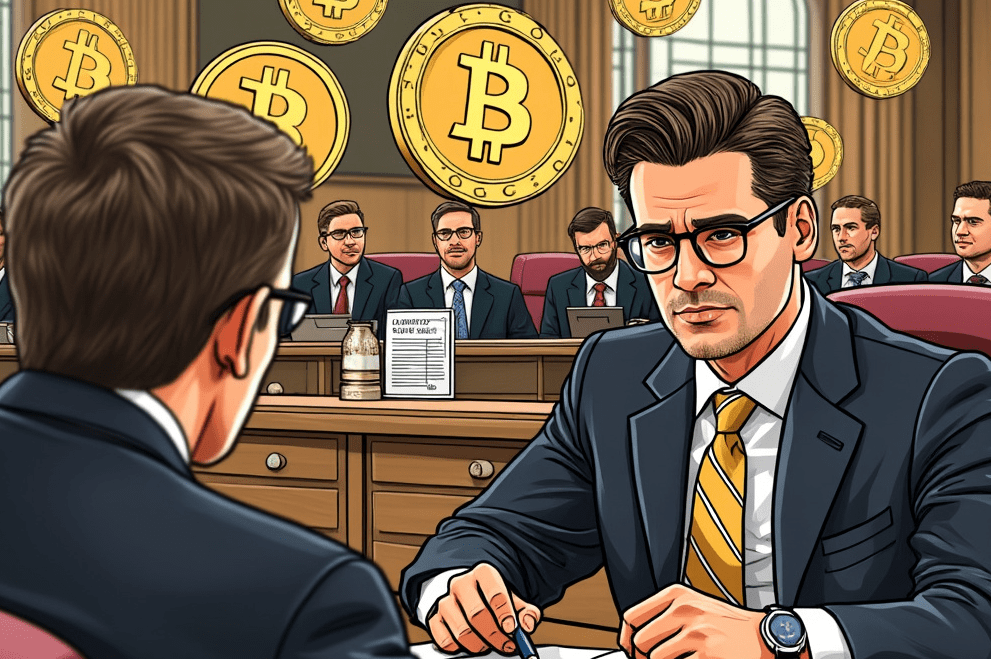Former FTX CEO Sam Bankman-Fried has officially filed an appeal, requesting a new trial in response to his conviction on charges of defrauding FTX customers, lenders, and investors. In a 102-page appeal submitted to the U.S. Court of Appeals for the Second Circuit, Bankman-Fried’s legal team argues that the original trial was mishandled by New York District Judge Lewis Kaplan, and key evidence was unfairly excluded.
Allegations of Bias and Media Influence
Bankman-Fried’s attorney, Alexandra Shapiro, strongly criticized the legal process, stating that her client was unfairly presumed guilty even before formal charges were brought. “He was presumed guilty by the media, by the FTX debtor estate, and its lawyers,” Shapiro argued. She also accused federal prosecutors of rushing the case for quick headlines, claiming that the judge in the case acted with a bias that undermined Bankman-Fried’s ability to present a full defense.
The appeal accuses Judge Kaplan of making decisions that heavily favored the prosecution, including blocking evidence that would have shown FTX and Alameda Research were solvent, not insolvent, as the prosecution alleged. According to Shapiro, this omission gave the jury a skewed perspective of the case.
FTX Insolvency Dispute
Central to Bankman-Fried’s appeal is the argument that FTX and Alameda Research were not insolvent, contrary to the claims made by prosecutors. Shapiro emphasized that FTX’s liquidity issues in November 2022, which triggered a “bank run,” were not the result of mismanagement or fraud. Instead, Bankman-Fried had made sound investments, such as a $500 million stake in AI company Anthropic and significant holdings in Solana, but these were illiquid at the time of the crisis.
The appeal goes on to argue that FTX’s bankruptcy proceedings have recovered up to $16.3 billion in assets, evidence that contradicts the prosecution’s claim that Bankman-Fried had stolen or squandered funds. Shapiro pointed out that the bankruptcy estate’s recovery efforts show that FTX’s liquidity crunch did not reflect its overall financial health. “The narrative presented to the jury was false,” she claimed, “and FTX was never truly insolvent.”
Defense Evidence Excluded
One of the key points raised in the appeal is the exclusion of defense evidence during the trial. Shapiro criticized the court for preventing Bankman-Fried from introducing evidence that he relied on legal advice when making certain business decisions. This would have countered allegations that he knowingly misappropriated customer funds. Additionally, the defense was blocked from presenting evidence to refute the prosecution’s claim that FTX’s financial collapse was caused by Bankman-Fried’s reckless spending, including political donations and luxury real estate purchases.
According to the defense, the court’s rulings deprived Bankman-Fried of his right to fully argue his case. Shapiro contended that if the defense had been allowed to present this evidence, it could have shown that Bankman-Fried acted in good faith and did not intentionally commit fraud.
Judicial Misconduct Allegations
In the appeal, Shapiro also alleges that Judge Kaplan exhibited overt bias throughout the trial. She argues that the judge’s actions, including pressuring the jury to reach a quick verdict by offering free dinner and car service, indicated favoritism toward the prosecution. The defense claims that Kaplan frequently expressed a belief in Bankman-Fried’s guilt, compromising the fairness of the proceedings.
Shapiro’s appeal argues for a new trial, citing Kaplan’s alleged misconduct as a central reason. The defense hopes that a different judge and the inclusion of previously excluded evidence will provide Bankman-Fried with a fairer chance to contest the charges against him.
Comparisons to Bernie Madoff and Fraud Allegations
Throughout the trial, prosecutors likened Bankman-Fried’s actions to those of Bernie Madoff, a notorious Ponzi scheme operator, describing the FTX collapse as “likely the largest fraud of the decade.” They argued that Bankman-Fried deliberately misled investors, customers, and lenders by funneling billions into Alameda Research, his hedge fund, for risky investments.
Bankman-Fried’s legal team contends that these allegations are not only exaggerated but also unsupported by the full scope of the evidence. The defense insists that many of Bankman-Fried’s investments were forward-thinking and had significant potential, albeit illiquid at the time of FTX’s liquidity crisis.
Conclusion and What’s Next
With the appeal now in the hands of the U.S. Court of Appeals for the Second Circuit, Bankman-Fried’s legal battle is far from over. His defense team has made it clear that they believe he was denied a fair trial and that the exclusion of critical evidence played a pivotal role in his conviction.
Whether or not the appeal will lead to a new trial remains uncertain, but the case continues to attract widespread attention. As FTX’s bankruptcy estate continues to recover assets, Bankman-Fried’s future hinges on the outcome of this appeal, which could redefine the course of one of the most high-profile fraud cases in recent history.












